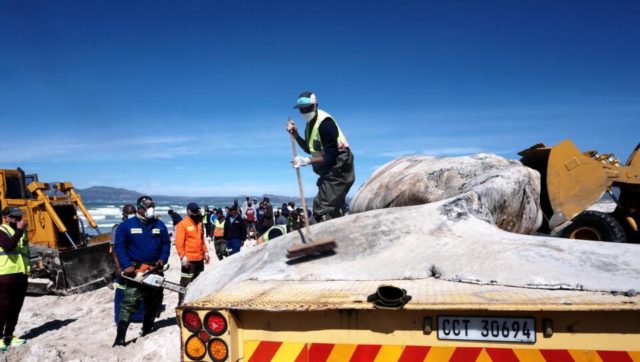Experts are expecting to see an increase in the number of whales being washed ashore because of a food shortage.
CAPE TOWN – Experts are expecting to see an increase in the number of whales being washed ashore because of a food shortage this year, which has seen seen seals as far afield as Namibia starving.
This comes after a 14-metre humpback whale washed ashore near Strandfontein, on the False Bay coast, on Saturday.
The City confirmed that the whale appeared to have been dead for a few days. The cause of its death is still not known.
National Sea Rescue Institute (NSRI) spokesperson Craig Lambinon said they appealed to the public to be cautious after the carcass washed ashore.
“It is normal for an increase in shark activity around a whale carcass,” he said.
Sea Search Research and Conservation director Simon Elwen said: “Shark activity may increase in the area around a carcass. However, these sharks would already have been present in the bay anyway, they would just be aggregating in that area.”
He said the “cautionary note” from the NSRI and shark-spotters is just them being cautious. If shark activity increases, it would only be within a kilometre of the animal and not the whole bay.
“The female whale was around 14m long, with no entanglements and no shark bites. It was probably dead for two days before it washed ashore. The whale was skinny and late in the breeding season,” he said.
Elwen said it is suspected that more whales could be washed ashore, which is indicated by the low right whale numbers in South Africa and the starving seals in Namibia, which means there is a food shortage this year.
He said: “At this time of the year, humpback whales are migrating south from their breeding grounds off West Africa, and haven’t eaten properly in months.”
The City’s Water and Waste Department will require special machinery to remove the whale because of its size. The whale will be taken to Vissershok landfill site, as per the City’s whale removal policy.








